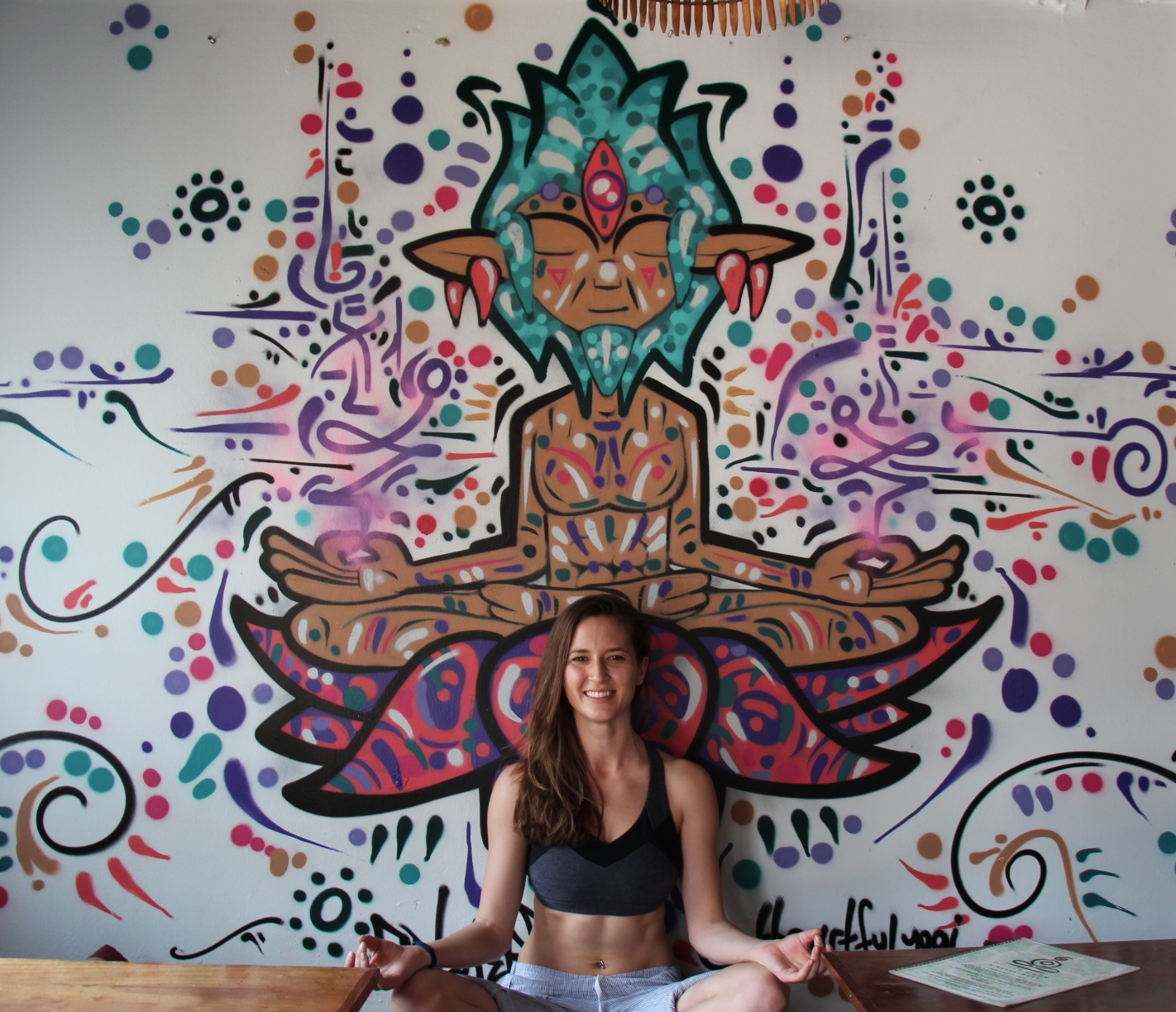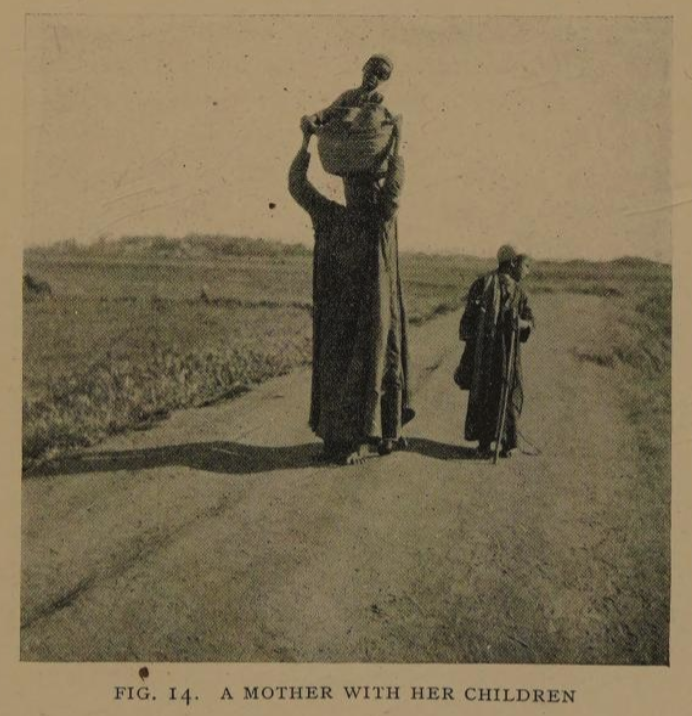African Sounds Still Flowing Through Every Language
Like an ancient song we're finally remembering the words to
The Source of All Rivers
Picture this: Deep in the heart of Congo, where the headwaters of the Nile begin their 4,000-mile journey to the Mediterranean, our ancestors made a discovery that would change everything.
Twenty thousand years ago, at a place called Ishango, they carved notches into a small bone—humanity's first calculator. They were tracking the moon, counting prime numbers, maybe even mapping the stars. And they marked this breakthrough with a sound: IS.
IS-ango. The place where human mathematical thinking was born.
But that wasn't all. In this same region flowed a river called Maringa—carrying the sound MAR that would one day become the word for "sea" in nearly every language on Earth.
And nearby lived the Ngombe people, who told stories of Mbokomu, the first woman, the original mother, the ancestor of us all.
Three sounds. One region. The Congo—source of the Nile, source of Egypt's wealth, source of the rains that made civilization possible.
IS. MAR. The beginning of language as we know it.
Following the Sound Downstream
Just as the Nile carries African waters to distant shores, these African sounds traveled the world's first trade routes. Picture the ancient merchants carrying lapis lazuli—that brilliant blue stone more precious than gold—from Afghanistan to Egypt. They didn't just carry stones. They carried sounds. African sounds.
IS became Isis in Egypt, Ishtar in Mesopotamia, Astarte in the Levant. The sound that began at humanity's first university now marked goddesses across three continents.
MAR became mare in Latin, mer in French, meer in German. The sound that started at a Congo river now flows through every word we use for "sea."
But there's something even more remarkable about these sounds. Something that changes everything we thought we knew about the origins of language and religion.
The Secret Hidden in Plain Sound
Here's what linguists have always known, but somehow forgot to connect: In Semitic languages—Hebrew, Arabic, Aramaic—consonants carry the core meaning. Vowels are just grammatical decorations that change over time.
This means MAR and MARY aren't two different words. They're the same word.
The M-R consonant pattern that gives us "mare" (sea) is identical to the M-R pattern in "Mary" (beloved).
Think about that for a moment. The most sacred name in Christianity and the most common word for "sea" share the same African consonantal DNA.
The First Mary
Let's follow this sound back to its beginning. In 2950 BCE—nearly 5,000 years ago—Egypt's first female pharaoh took the throne. Her name was Merneith: "Beloved of Neith," the ancient goddess of waters and wisdom.
Merneith wasn't just any ruler. Archaeological evidence suggests she wielded power equal to the male pharaohs, with a tomb built among theirs at Abydos. She may have been humanity's first recorded female sovereign.
Her name carries that same M-R pattern: Mer-neith. Beloved.
For the next 3,000 years, that sound echoed through Egyptian royal names:
Mery (1401 BCE)
Meritaten (1340 BCE)
Merit (1425 BCE)
Miriam in the Hebrew Bible
Maria in Greek
Mary in English
An unbroken chain of M-R sounds, carrying the memory of Africa's first queen across five millennia.
Where Rivers Meet
Now imagine a place where all these sound streams converged. At the great bend of the Nile sits Qena—a city that controlled the trade routes between Africa, Arabia, India, and China.
Here, the IS sounds from Congo met the M-R sounds from Egyptian royalty. Here, African traders speaking one tradition encountered African traditions preserved in another culture. Here, the sounds amplified each other before spreading worldwide.
Qena wasn't the source—it was the amplifier. The place where multiple African sound lineages recognized each other and traveled together to distant shores.
Songs We're Still Singing
Today, when you say any of these words, you're singing an ancient African song:
Water words with M-R:
Marine
Maritime
Mermaid
Marsh
Sacred words with IS:
Isis
Easter
Paradise
Crisis
Beloved words with M-R:
Mary
Maria
Miriam
Mercy
Every time you say "Mary had a little lamb" or "the mermaid swam in the sea," you're speaking 40,000-year-old African sounds. Sounds that marked the first human breakthroughs in mathematics, astronomy, and divine wisdom.
The Congo Connection
Here's the revolutionary truth: All major human innovations trace back to African origins. Not just our species, but our consciousness. Our first tools, our first agriculture, our first cities, our first writing, our first mathematics.
And our first sounds for the sacred.
The Congo region where these patterns originated isn't just geographically significant—it's the source of the Nile itself. The rains that fall in these African highlands flow north, carrying both water and wisdom to Egypt, the Mediterranean, and beyond.
Ancient Egyptians understood this. They knew their prosperity came from the heart of Africa. The seasonal floods that made their civilization possible originated in the same region that gave us the IS and M-R sound patterns.
Water flows from Africa. Wisdom flows from Africa. And language—the very sounds we use to express our deepest beliefs—flows from Africa.
The Waters of Life
Now we understand why women are so deeply connected with water in these ancient sounds. Think about the most fundamental truth of human existence: we all begin in water.
For nine months, we float in our mother's waters—the amniotic sea that creates and sustains life itself. Birth is breaking of waters. The first breath comes after emerging from that sacred sea within her body.
Mother Earth gives us the waters of creation—her birth waters, connected with rebirth and resurrection. Rivers flow like arteries through her body. Rain falls like her tears of joy. The ocean itself mirrors the womb from which all life emerged.
And when we die? In many African traditions, death means "to return to the earth"—essentially, to return to the mother. The cycle completes itself. From her waters we come, to her earth we return.
The All-Powerful Source
Our ancestors understood something we're only now remembering: women's bodies produce and nourish life itself. Before anyone understood how conception worked, the mother was seen as the sole creator—making humans from her own substance, feeding them from her own body, sustaining them with her own milk.
She was all-powerful because she was the source of all power: life itself.
This is why the IS and M-R sounds are so profoundly connected to both water and the divine feminine. They preserve the memory of when humanity recognized that women's bodies were the ultimate technology—more powerful than any tool, more sacred than any temple, more essential than any innovation.
In the Congo today, the same region that gave us these ancient sounds, we still find:
Matrilineal kinship systems where lineage flows through the mother
Goddess worship traditions centered on water spirits
Female creator myths like Mbokomu, the first woman
Understanding that life flows from the feminine source
The Ngombe people still honor Mbokomu as the first woman, the original gardener, the ancestor of all humanity. Their language preserves sounds and stories that connect directly to the earliest mathematical sites, the oldest goddess traditions, the deepest human memories.
When patriarchal societies later adopted these sounds, they often inverted their meanings. The powerful creators became virgin mothers. The sacred life-givers became suffering saints. The ruling queens became silent wives.
But the sounds themselves? The sounds remembered the truth: that the feminine principle is the source from which all life flows, like rivers from their mountain springs.
Remembering the Lyrics
Think of it like this: For thousands of years, humanity has been singing a song whose words we'd forgotten. We kept the melody—the IS and M-R sound patterns—but lost track of what they originally meant.
Now, through linguistic archaeology, we're remembering the lyrics.
When we say "Isis," we're remembering the sound of humanity's first mathematical breakthrough.
When we say "Mary," we're remembering the name of Africa's first queen.
When we say "marine," we're remembering the river that flowed through the region where consciousness itself was born.
The Flowing Forward
This isn't ancient history—it's living memory. Every language on Earth carries these African sound patterns. Every prayer to Mary echoes the name of Merneith. Every reference to the sea preserves the memory of the Maringa River.
We are all, quite literally, speaking African.
The question isn't whether these connections exist—the linguistic evidence is overwhelming. The question is what we do with this knowledge.
Do we continue to forget the source of our most sacred sounds? Or do we remember that every human innovation, every religious concept, every fundamental breakthrough traces back to African origins?
Do we keep singing the song without knowing its meaning? Or do we finally remember the ancient lyrics that tell the story of where we all came from?
The Final Revelation
But wait. There's one more sound hidden in plain sight.
Remember Qena—that bend in the Nile where all the African sound streams converged? The place the Greeks called "Kaine," meaning "new city"?
Q-N. The consonantal pattern that gives us QENA.
Now think about this: What do we call a female ruler? What word do we use for the ultimate expression of feminine power?
Queen.
Q-U-E-E-N.
Strip away the vowels, following the same Semitic pattern that revealed Mary and mare as one word, and what do you have?
Q-N.
The bend in the river. The place where African sounds converged. The amplification point where humanity's oldest traditions met and merged before flowing worldwide.
Every time we say "Queen," we might be speaking the name of the place where African linguistic DNA was packaged for global distribution. The bend that curved the course of human language itself.
The River Still Flows
The Nile still begins in the Congo region. The mathematical sites are still there. The goddess traditions continue. The sounds flow on.
And every time we speak of things beloved, things sacred, things connected to water and wisdom and the divine feminine—every time we say "Queen"—we're participating in the longest continuous cultural tradition in human history.
We're singing the song our ancestors began 40,000 years ago in the heart of Africa. A song that includes not just the words for beloved and sea and sacred, but the very word for female power itself.
The question isn't whether these connections exist—they're flowing through our mouths right now.
The question is: Are we ready to remember all the words?
The source remembers us, even when we forget the source. And the river still bends toward remembering—toward that immortality we achieve when someone speaks our name after we have passed.
Every baptism in sacred waters, every blessing at holy wells, every temple built upon springs—all echo the ancient understanding that water connects birth and rebirth, body and spirit, this life and whatever comes after.
We are still being baptized in African waters. We are still speaking African names. We are still singing the song that began where the river bends toward home.

